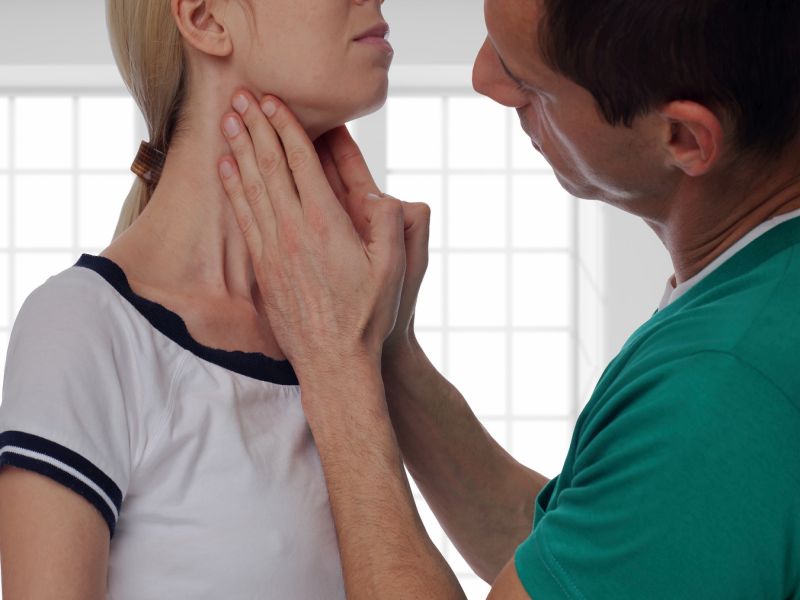
Regular self-exams play an important role in early detection of thyroid disease, a specialist says.
That’s a timely reminder because January is Thyroid Awareness Month.
“The number of cases of thyroid cancer is rising, and while in most cases the outcomes of treatment are favorable, some patients present with disease that has progressed and may be more difficult to treat,” said Dr. Ilya Likhterov. He is an ear, nose and throat doctor in New York City.
About 200 million people worldwide have thyroid disease. Of more than 20 million Americans with thyroid disease, only four out of 10 know they have it, according to the American Thyroid Association.
“While in most patients thyroid cancer develops without signs or symptoms, patients who have had significant exposure to radiation or who have first-degree family members with a history of thyroid cancer need to be especially cautious, since they are at a higher risk,” Likhterov added.
All patients must pay attention to sudden voice changes or masses in the neck, said Likhterov, an assistant professor of otolaryngology at Icahn School of Medicine at Mount Sinai in New York City.
If undetected and untreated, thyroid disease can cause depression, constant exhaustion, joint pain, muscle aches, weight gain and hair loss, according to a Mount Sinai news release.
To perform a thyroid self-exam, use a mirror to view the lower middle area of your neck, above the collarbones, and below the larynx. This is where the thyroid is located.
While focusing on this area, tip your head back, take a drink of water and swallow. As you swallow, watch for any bulges or protrusions, Likhterov said.
It’s important not to confuse the Adam’s apple with the thyroid, which is located farther down on your neck, closer to the collarbone.
If you detect any bulges or protrusions in this area, see your physician, Likhterov said. You may have an enlarged thyroid or a thyroid nodule. A doctor can determine if cancer is present or if you require treatment for thyroid disease.
More information
The U.S. Office on Women’s Health has more about thyroid disease.
Source: HealthDay

Leave a Reply